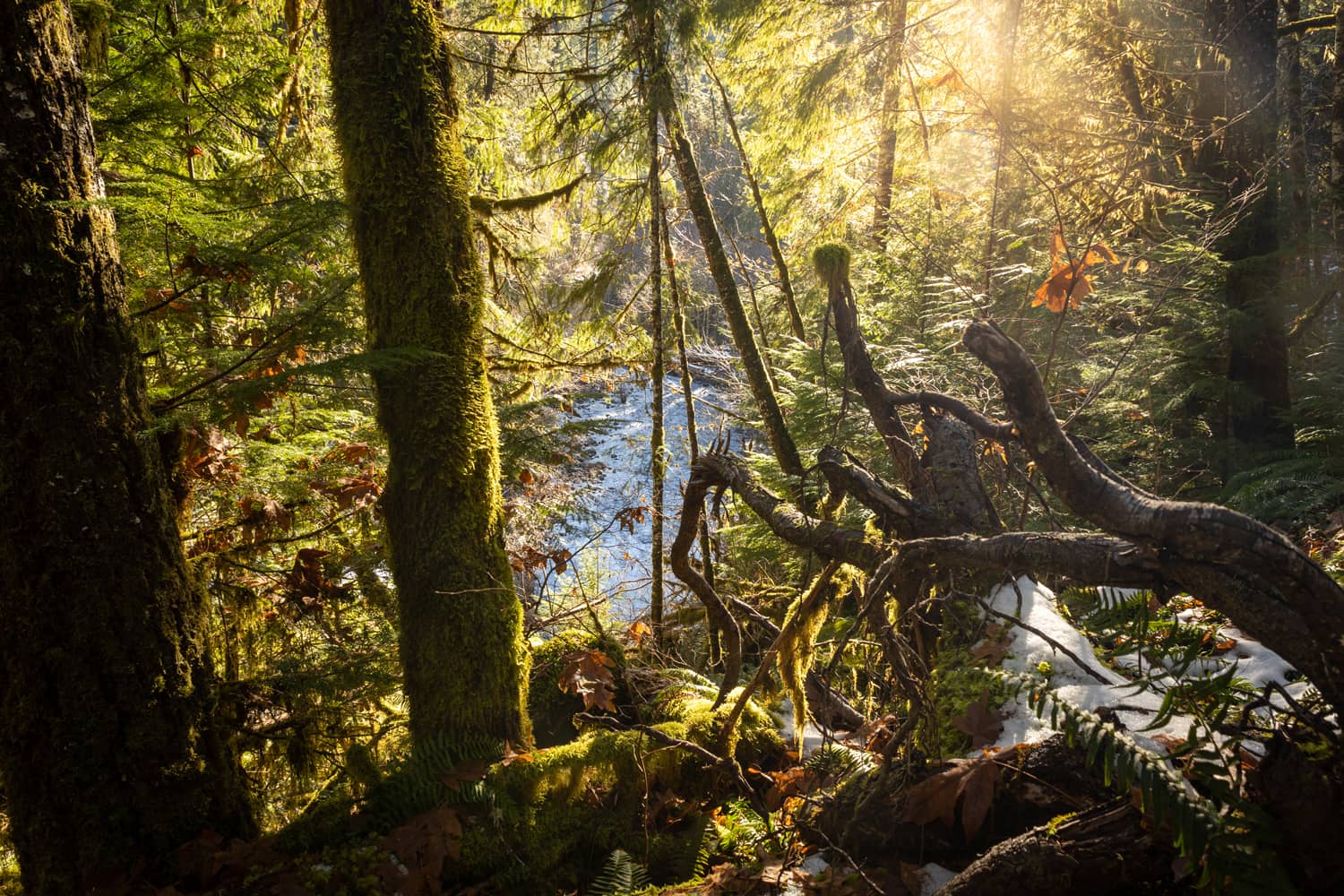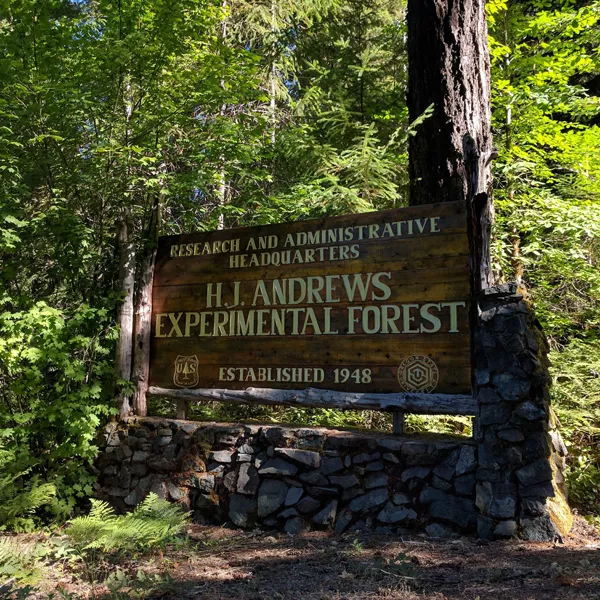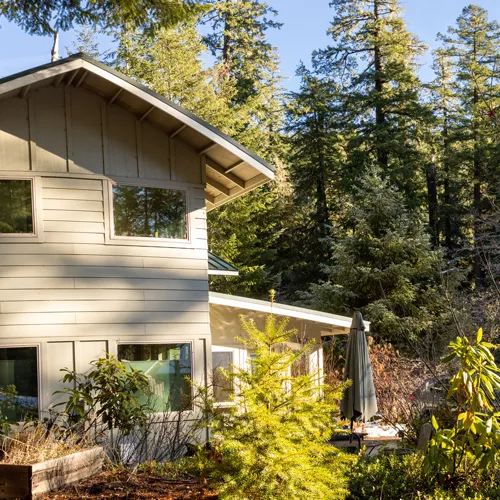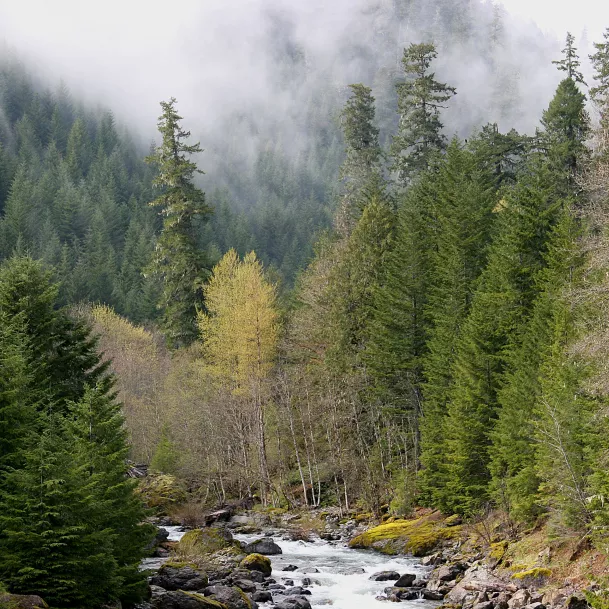Long-Term Ecological Reflections Residency

Location: H.J. Andrews Experimental Forest
The Long-Term Ecological Reflections program invites writers, artists, musicians and humanities scholars to the ancient forests of the Blue River watershed in Oregon, where scientists are engaged in long-term study at the H.J. Andrews Experimental Forest. By inviting people from many backgrounds to be in conversation with one another and with the diverse voices of the forests and streams, Long-Term Ecological Reflections is committed to creating a living, growing record of the changing forest and the changing relation of people to forests over time.
We believe that ideas grow from the landscape, and that close attention to a particular place can ignite imagination and reveal broader insights that go beyond that place and time. We also believe that inspiration and understanding can only be found with insights from many different perspectives, cultures, backgrounds, ways of knowing and disciplines. We honor and include diverse voices in Long-Term Ecological Reflections, both as humanity’s rich cultural legacy and the shape of human aspiration.



A 200-Year Project
The Long-Term Ecological Reflections program began in 2003 and is intended to span two hundred years (2003 to 2203). That is approximately seven generations of human lives but only a quarter of the lifetime of the oldest red cedars in the H.J. Andrews Experimental Forest. We are committed to taking the long view because we believe that truths reveal themselves over time and many cannot be fully grasped in short glimpses. So, we should study a place for generations—patient in drawing conclusions, humble in the presence of deep time, and open to surprise. We also believe that long-term thinking is a radical act, a corrective to the dangerous impatience of modern life. Nevertheless, we live in a time of ecological and moral crisis where the urgent need for new ways of thinking and being sits in tension with the wisdom that evolves over generations.
Experimentation and Inquiry
Long-Term Ecological Reflections runs parallel to Long-Term Ecological Research. Both programs are committed to inquiry—to looking closely at a place as truths are revealed.
Rather than bringing a predetermined project to the Andrews (e.g., finishing a novel or revising a book chapter), we invite residents to bring an experimental mindset, be fully immersed in the forest and let a project develop in relationship to this place.
We encourage residents to connect with researchers at H.J. Andrews Experimental Forest before, during and/or after their stay. Our staff can help introduce residents to people studying a wide variety of topics including water, climate, birds, mammals, insects, trees, geology, fish, insects and lichen. To help residents get to know the forest, we invite them to visit select Reflection Plots, including a grove of 600-year-old cedars, the pebble beach of a small stream, a tree stand recently burned in a wildfire and a mossy, light-graced “decomposition site” where fallen trees return to duff. Residents will be given a map and more information about the Reflection Plots prior to their visit.
The Forest Log
We invite residents to contribute to the Forest Log, an online catalog of responses to the forest. Every contribution is unique. Some residents send hand-written field notes and sketches immediately following their residency, while others send published poems, essays and book chapters years later. Some artists visit the forest many times and create long-term projects that result in art exhibitions, concerts, books or new collaborations. All residents retain copyright of their work and we encourage residents to share their Long-Term Ecological Reflections work in public venues of all sorts (e.g., publications, exhibitions, performances).
A new Forest Log website is currently under development. We look forward to sharing it here and via the Spring Creek Project newsletter when it launches.
In 2023, the Lookout Fire affected nearly 70% of the H.J. Andrews Experimental Forest. We are pausing our usual Long-Term Ecological Reflections residency to respond to the fire with the Fireline Fellowship. Please click here to learn more.
Residency Details
Long-Term Ecological Reflections residencies are generally awarded to four people per year, but we can occasionally support additional residents—especially collaborative partners—when space allows. At least two spots per year are reserved for writers. The other two spots may be awarded to those from other disciplines, including those working in visual arts, music/sound, ethics or humanities.
Applicants may apply individually or in a collaborative group of up to four people.
Selected applicants spend two weeks in residence at the H.J. Andrews Experimental Forest. This residency time may be completed in multiple blocks, such as two, one-week stays. Additional residency time may be possible if a project would benefit from it and space and funding allows.
Residents are expected to engage with the forest and are encouraged to submit their work to the Forest Log.
Sign up for our newsletter to receive program updates and announcements.
We are pausing our usual Long-Term Ecological Reflections residency for two years to respond to the Lookout Fire with the Fireline Fellowship. If you have questions, contact Joy Jensen, [email protected].
Residents are selected by an external review committee. Committee members may include writers, artists, musicians, humanities scholars and alums of the Long-Term Ecological Reflections program. Review committee members generally serve for two years.
This is a Spring Creek Project residency hosted in partnership with the H.J. Andrews Experimental Forest.
Current Residents
Deana Dartt and Heron Brae. This collaborative pair is working on themes related to decolonizing, regenerating landscapes, and restoring relations. Their decolonization work is inherently rooted in and supported by deep, slow time to think, reflect and connect with the earth.
Jason Graham, aka MOsley WOtta. Jason is developing a project exploring the idea of care as a revolution. In part, he's inspired by communities of care in ecosystems. He is a musician who also works in other mediums, including writing, painting, performance and video.
Past Residents
We have hosted more than 100 writers, artists, musicians and scholars in residence at the Andrews Forest. We look forward to featuring them and their work in our new Forest Log site, which will launch later this year.

